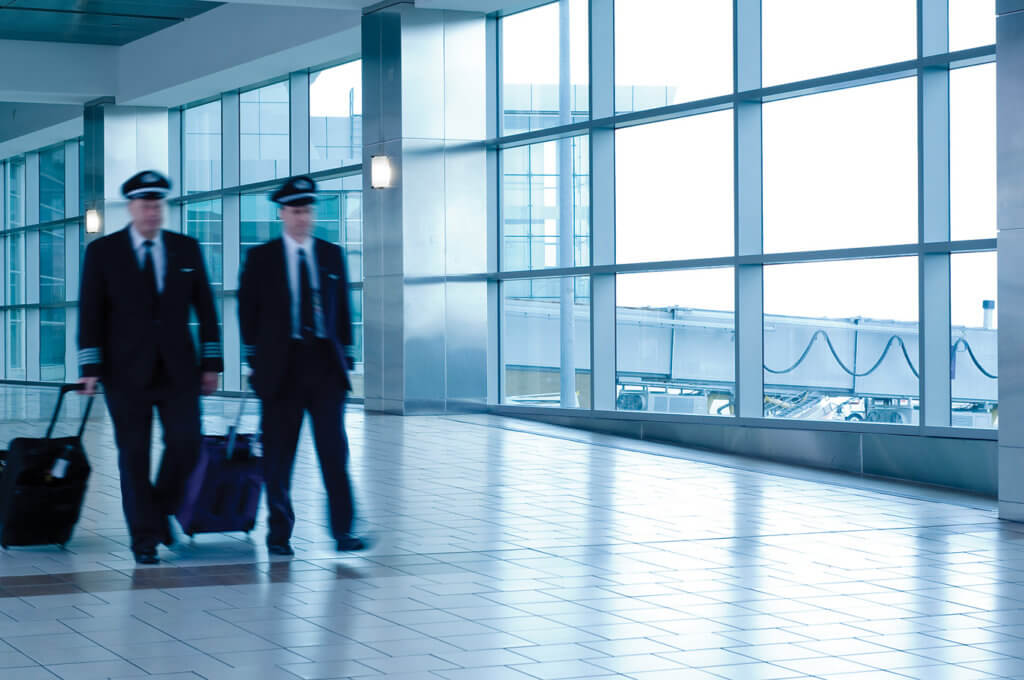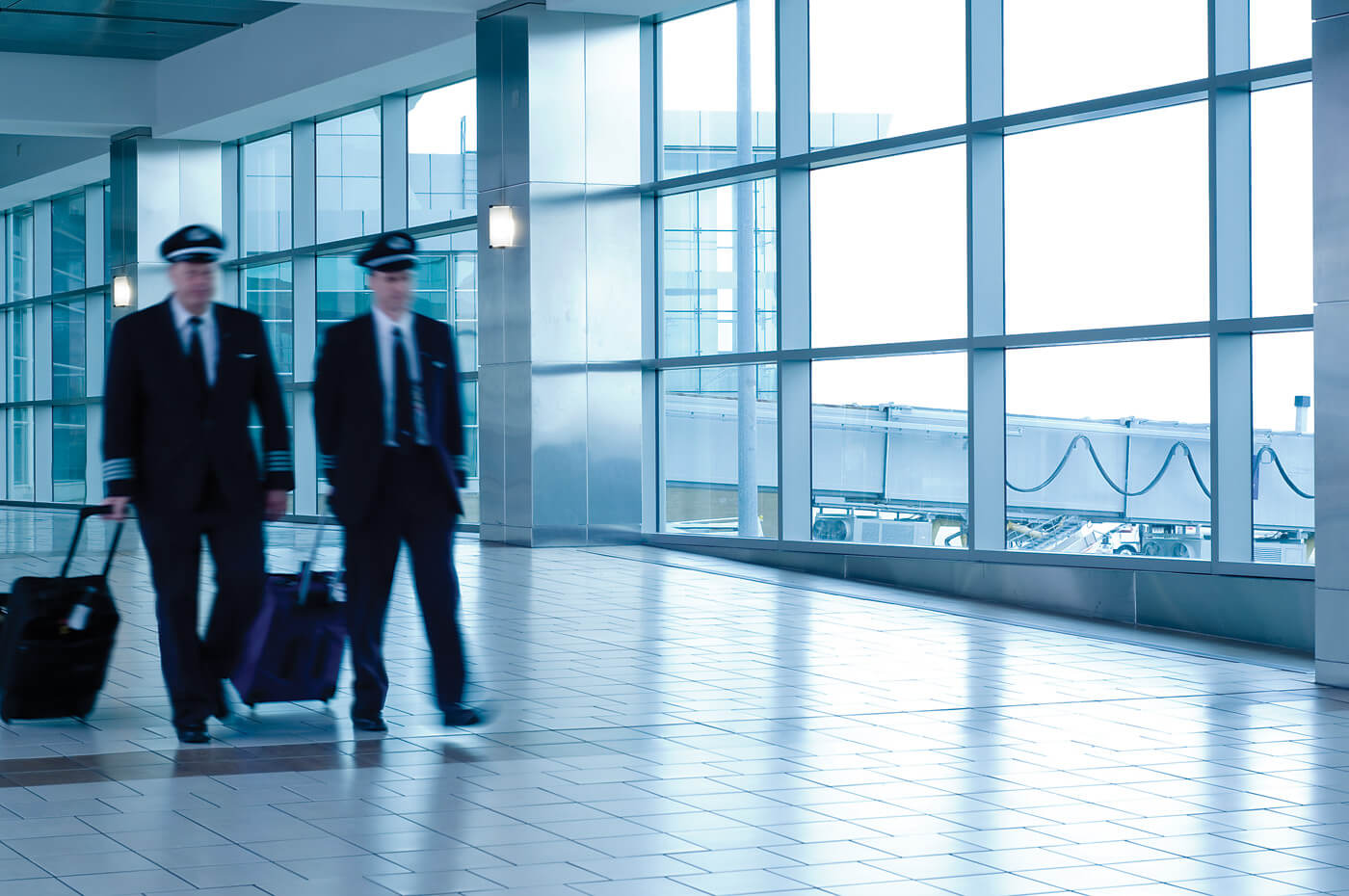Estimated reading time 9 minutes, 21 seconds.
In the aftermath of the crash of Germanwings flight 9525 in March 2015, airlines and safety regulators reacted to the tragedy by increasing scrutiny of pilots’ mental health.

Multiple airline policies have since been implemented and rules proposed. Research has gone so far as tracking pilots’ brains to measure mental states. For their part, pilot unions have cautioned that this increasing focus on pilots’ mental health may lead to invasive practices.
In this report, Skies reviews existing Canadian processes, procedures and regulations relating to pilots’ mental health. Is there an opportunity to do more?
The Canadian way
In Canada, all commercial pilots are seen by a civil aviation medical examiner (CAME) prior to receiving a medical certificate from Transport Canada. CAMEs assess individual pilots on a regular basis according to the type of licence they hold, their age, and their health. Under Transport Canada guidelines, CAMEs review every pilot’s medical history to ensure there are no signs of psychosis or suicidal behaviour. More than 950 designated CAMEs across Canada and overseas conduct approximately 55,000 medical examinations annually, according to Natasha Gauthier, a Transport Canada spokesperson.
“Transport Canada is committed to ensuring the qualification and high standard of performance of all CAMEs,” she said. “They are required to regularly attend training seminars that include specific content on psychiatric issues in pilots. CAMEs are also required to submit all documents approving the medical fitness of pilots to Transport Canada for review, and their performance is monitored by board-certified specialists in aerospace medicine.”
The Canadian system of monitoring pilots’ physical and mental well-being is distinctly different from the jurisdiction under which Germanwings flew.
According to former Air Canada captain Marcel Martineau, there was a business aircraft accident several years ago in Toronto; the pilot had heart problems which were known to his doctors but never disclosed.
“The pilot had a heart attack on final approach and the aircraft crashed as a result,” recounted Martineau. “Following this accident, the rules were changed in Canada. The law makes it compulsory for doctors who are aware that their patient is a pilot to report any medical situation that could disqualify them from flying to Transport Canada. It has been the rule for about 25 years and every pilot understands the rules.”
According to Capt Brian Shury, vice-president of the Air Line Pilots Association (ALPA) Canada Board, this policy represents a fundamental difference between Canadian and European regulations that could perhaps prevent a similar Germanwings-style occurrence in a Canadian airliner.
“Also, section 6.5 of the Aeronautics Act requires every pilot to disclose, when seeking treatment from any medical professional, that she or he is a pilot. The Germanwings accident report recommends similar changes in Europe,” added Shury.
Shortly after the Germanwings event, Transport Canada reacted by issuing an interim mandatory order for two crewmembers to be in the cockpit of commercial flights at all times.
In June 2016, Transport Canada issued a further interim order requiring two crewmembers be on the flight deck at all times. Valid for one year, the interim order requires that, in the case of two-person flight crews, when one flight crewmember exits the flight deck, another authorized person must enter and remain until that person returns.
ALPA is anticipating consulting on Transport Canada’s desire for a permanent regulation and is encouraging the regulator to review the interim order using an evidenced-based approach, supported by mature risk assessment methodologies and involving all stakeholders, in order to ensure there are no unintended consequences from making the order permanent.
In addition, Transport Canada wants CAMEs to probe a little deeper when it comes to pilots’ mental health.
“Transport Canada intends to modify the CAME report to include questions about a pilot’s well-being during the periodic examination for renewal of a medical certificate,” said Shury.
Satisfying stakeholders
An increased scrutiny over pilots’ mental health requires significant effort in order to satisfy all stakeholders; namely, pilots, airlines and the regulatory body.
According to Daniel Danczyk, a medical doctor and aviation psychiatrist, it is possible to strike a balance that meets the competing interests of stakeholders, but the process requires open dialogue and the willingness to compromise.
“A prerequisite is ensuring the problems are clearly defined; this is the foundation upon which to build stakeholder satisfaction,” he said. “This is always a concern after any aviation mishap, since policy development can be political and/or reactionary, further engendering mistrust between stakeholders.”
To help build that foundation and ensure stakeholder satisfaction, parties should agree to an independent, commissioned study which proposes potential solutions (and their drawbacks) for the defined problems. This commission would synthesize all the available research evidence, according to Danczyk.
He added that the only way to build trust into any mental health monitoring system is by guaranteeing that pilots will be given a medical “due process” evaluation–with checks and balances at multiple levels–which allows for the return to flying when appropriate; i.e., after treatment and/or during maintenance treatment with symptom resolution.

A due process evaluation would also allow for continued flying, if safety is not a factor, when the appropriate controls are in place.
“In other words, any pilot mental health monitoring system should not be black and white,” said Danczyk. “For instance, it shouldn’t automatically take a pilot off duty just because s/he is ‘stressed’ and presumed to have a mental health issue. For example, a prolonged child custody battle may lead to higher stress levels that preoccupy one pilot’s mental focus, while in another pilot the same level of stress may not preoccupy their mental focus. The only way a pilot could trust a monitoring system is by knowing that revealing such stress levels do not automatically take them off flight duty; otherwise, they will not reveal them to begin with.”
He added that the stigma of mental health in society at large would encourage pilots not to reveal stress, especially if they knew their livelihood was on the line and no system guaranteed a medical due process aiming to return them to flying status.
Other keys to building trust include a mechanism to ensure continued income while pilots are restricted from flying–without penalty–and maximizing medical privacy, said Danczyk.
Martineau also stressed the need for adequate income protection through the employer. “This is, in some cases, added to some supplemental income protection by the pilot association for a certain time period,” he said.
According to Danczyk, pilots will not have an incentive to report mental health concerns if the flight doctor they see has a direct relationship with the airline hierarchy. The flight doctor must be a third-party who does not work for the operator, and can communicate with the treating doctor or therapist, he said.
Shury noted there are already a number of confidential programs in which pilots and management work together to resolve issues and help pilots return to or remain in their jobs. “Ultimately, the almost non-existent number of incidents demonstrates the system is working,” he said.
Harmonizing requirements
As pilots’ mental health is more closely scrutinized, it will be necessary to harmonize future requirements with the already existing and stringent crew medical requirements, without causing too much of a regulatory burden.
According to Shury, pilots are one of the most regulated and scrutinized group of transportation workers in the world.
“We look forward to a thorough discussion–using an evidenced-based approach supported by mature risk assessment methodologies and involving all stakeholders of any proposed modification to the existing system of checks and balances–on pilot medical procedures and mental health monitoring,” he said. “It is important that as we move forward, any modifications must be part of a complete package and not developed in isolation.”
Martineau believes thorough scrutiny is merited. “The lives of many passengers are on the line. A pilot licence, at least in Canada, is a privilege and it is the cost of doing business,” he said.
Looking ahead
Soon after the Germanwings accident report was issued earlier this year, the Air Transport Association of Canada (ATAC) formulated some concerns with regard to the lack of automatic communication between Transport Canada and air carriers.
“Only in circumstances where a serious threat is perceived does Transport Canada communicate with the carriers,” said ATAC president John McKenna. “We would prefer that an automatic notice be sent to the employer when a pilot, or an air traffic controller, loses their privilege to fly (or work in air traffic) due to a failed medical test (or psychological test if such a thing existed in Canada).
“We even suggested that Transport Canada inform the employer without revealing the reason for the loss of flying (or controlling) privileges, hoping to remain compliant with the right to privacy of an individual,” continued McKenna. “This was on our list of issues when we met with the Minister in May. He seemed in agreement with the need to find a solution quickly.”
Transport Canada’s Gauthier said the regulator is working closely with the medical community to ensure aircrew and air traffic controllers are medically fit, to close gaps in scientific knowledge of Canadian aviation medicine, to promote health and safety in the field of aviation, and to prevent aircraft accidents due to medically-related human factors.
“Departmental officials are reviewing the French Civil Aviation Safety Investigation Authority’s recommendations and report into last year’s Germanwings accident,” she noted. “We are conducting further assessments and building on the work accomplished at the international level before proposing regulatory amendments. Transport Canada continues to work with our counterparts to ensure a collective approach is taken to avoid future accidents.”
Martineau said some airlines offer employee assistance programs in cooperation with pilot associations’ medical committees. “Obviously, there has to be some trust between management and the pilot associations. The pilot peers are the best source of information that another pilot is under stress, and a report through an association medical committee that works with great confidentiality with management can intervene successfully in many cases and decide what is best for the pilot and the company.”
Shury reiterated that Canadian CAMEs already assess individual pilots on a regular basis according to their type of licence, age and health history. In addition, they already review every pilot’s medical history to ensure there are no signs of psychosis or suicidal behaviour.
“Existing checks and balances are in place and [they] are working,” he concluded.

